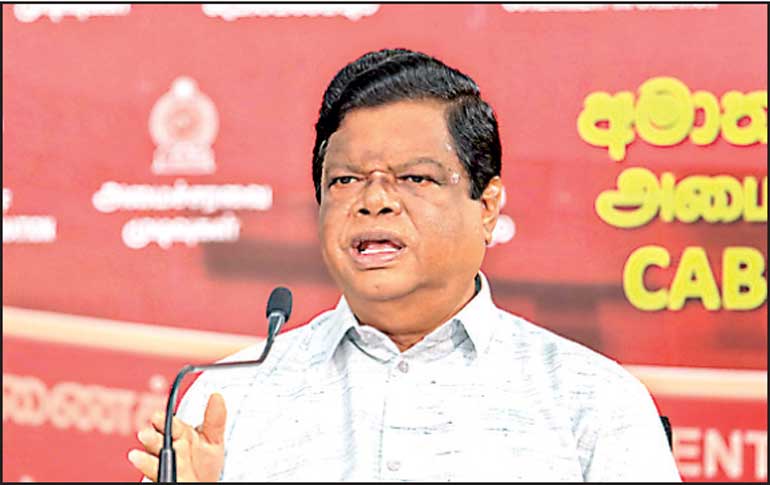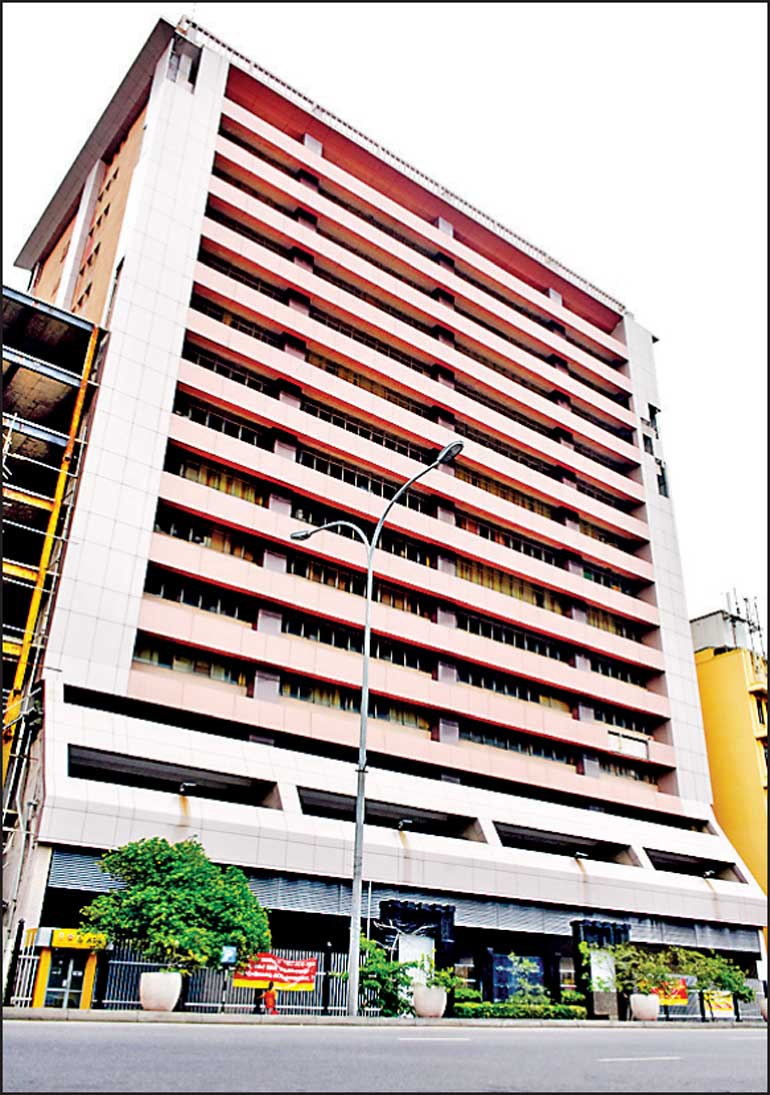Monday Feb 16, 2026
Monday Feb 16, 2026
Wednesday, 13 September 2023 00:00 - - {{hitsCtrl.values.hits}}

Cabinet Co-Spokesman and Minister Bandula Gunawardena

By Charumini de Silva
Considering strong protests from exporters opposing the abolition of the Simplified Value-Added Tax (SVAT) system, the Cabinet of Ministers approved the revision of the implementation date of the relevant provisions to repeal the SVAT to 1 April 2025.
The proposed revisions including the repeal of the SVAT were earlier poised to take effect from 1 January 2024. However, strong representations from various stakeholders emphasised the potential for disruptive financial implications, particularly for exporters currently registered under the SVAT system. They argued that a robust value-added tax repayment mechanism must be firmly established before the complete removal of the SVAT system.
In response to these concerns, the Cabinet of Ministers, under the guidance of President Ranil Wickremesinghe in his capacity as the Finance, Economic Stabilisation, and National Policies Minister approved a phased approach to implementing the new tax reforms.
“This measured transition aims to ensure a smooth shift while safeguarding the interests of exporters, within the economic landscape,” Cabinet Co-Spokesman and Minister Bandula Gunawardena said at the post-Cabinet meeting media briefing yesterday.
SVAT was a scheme extended to exporters to avoid delays in VAT refunds.
With an objective to boost tax receipts by eliminating tax exemptions, the Cabinet on 5 June approved revising the Value Added Tax Act No. 14 of 2002, which will also abolish the SVAT methodology with effect from 1 January 2024. Thereafter on 28 August, Cabinet cleared the draft Bill on VAT in the Government Gazette and subsequently tabled it in the Parliament for its approval. However, when it was taken for discussion at the committee stage of the Parliament for discussing the VAT (amended) Bill, it was decided to repeal the SVAT system step by step until a strong tax repaying mechanism was established.
According to the International Monetary Fund’s (IMF) extended funding facility (EFF), two major changes to the VAT needs to be implemented include; the Government should eliminate the majority of exemptions and revise the VAT scheme and discontinue the SVAT approach.
During the six months ending June 2023, the Government revenue and grants had increased to Rs. 1,317 trillion in comparison to Rs. 919.5 billion recorded in the corresponding period of 2022, the Central Bank announced last week.
Tax revenue amounted to Rs. 1.19 trillion as against Rs. 799 billion in 1H of last year. However, non-tax revenue was down to Rs. 116 billion from Rs. 120 billion.
